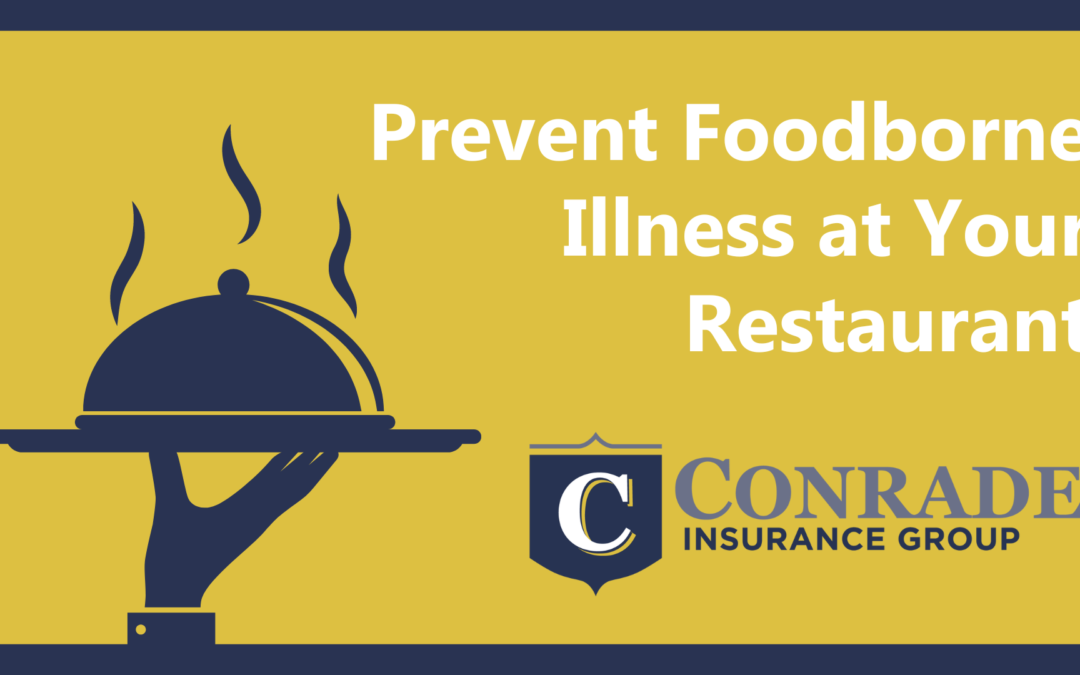Foodborne illness is a serious issue that can have devastating consequences for restaurants. Not only does it pose a significant health risk to customers, but it can also lead to substantial financial losses and affect your restaurant insurance costs. However, by understanding the primary causes of foodborne illness and implementing effective prevention measures, you can protect your business and ensure the safety of your customers.
The High Cost of Foodborne Illness
Foodborne illness can have a profound impact on a restaurant’s bottom line. For example, here are some of the ways it can damage your business:
- Lost revenue: Customers who experience foodborne illness may avoid your restaurant in the future, leading to a decline in sales.
- Negative media exposure: A foodborne illness outbreak can damage your restaurant’s reputation and make it difficult to attract new customers.
- Lawsuits and legal fees: If a customer becomes seriously ill due to foodborne illness, they may file a lawsuit against your restaurant. This can result in significant legal costs and potential damages.
- Increased restaurant insurance premiums: Insurers may increase your premiums to cover the increased risk of foodborne illness.
- Additional operational costs: Implementing food safety measures, such as staff training and new technologies, can add to your operating expenses.
The Primary Causes of Foodborne Illness
To effectively prevent foodborne illness, it is essential to understand the primary causes:
- Improper personal and tool hygiene: Food handlers must practice proper handwashing and sanitation techniques to prevent the spread of bacteria.
- Danger zone temperatures: Foods must be kept at safe temperatures (below 40°F or above 140°F) to prevent bacterial growth.
- Improper cooking: Foods must be cooked to the correct internal temperature to kill harmful pathogens.
- Cross-contamination: Raw foods should be handled and stored separately from cooked foods to prevent cross-contamination.
- Contamination from suppliers: Ensure that the ingredients you purchase are safe and free from contamination.
- Incorrect food storage: Store food properly to prevent spoilage and bacterial growth.
Prevention Strategies
On the other hand, here are some strategies you can implement to prevent foodborne illness in your restaurant:
- Develop a comprehensive food safety plan: A written food safety plan outlines your restaurant’s procedures for handling, preparing, and storing food.
- Train staff on food safety: Ensure that all staff members are trained on proper food safety practices.
- Implement a HACCP system: HACCP (Hazard Analysis Critical Control Point) is a systematic approach to food safety that identifies and controls potential hazards.
- Maintain a clean and sanitary environment: Regularly clean and disinfect all surfaces and equipment.
- Monitor food temperatures: Use thermometers to monitor the temperature of food throughout the cooking, cooling, and holding processes.
- Practice proper food storage: Store food at the correct temperatures and rotate stock to ensure freshness.
- Regularly inspect food for signs of spoilage: Discard any food that shows signs of spoilage or contamination.
By following these strategies, you can significantly reduce the risk of foodborne illness in your restaurant and protect the health of your customers and your business.

